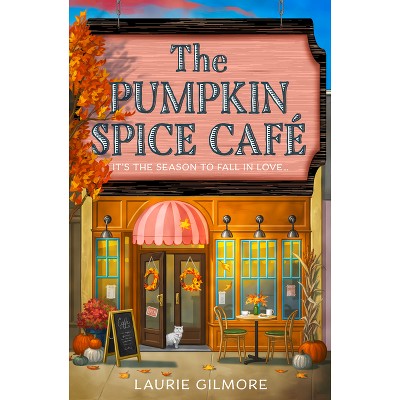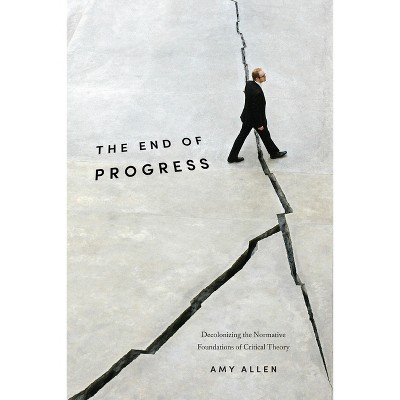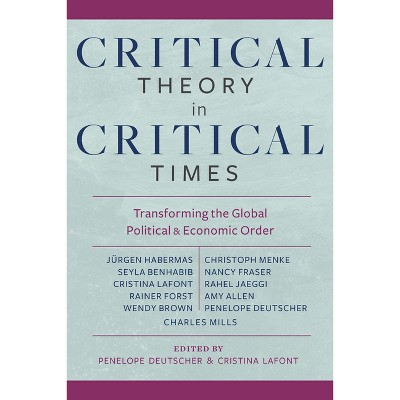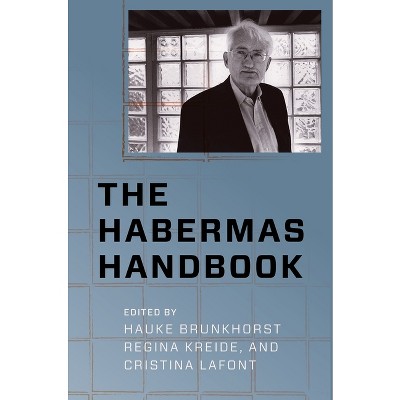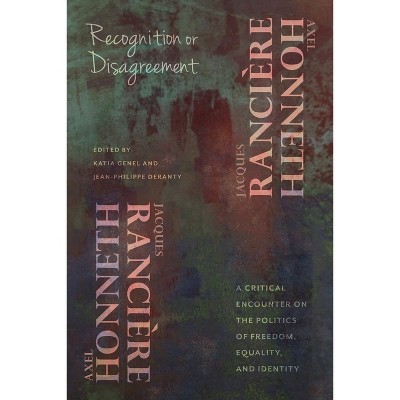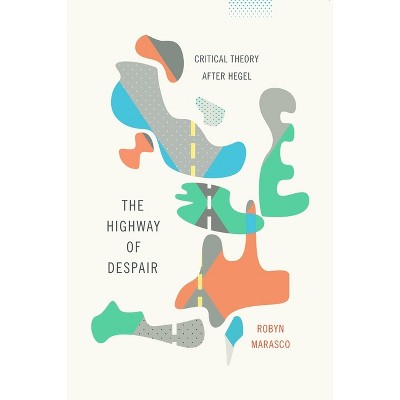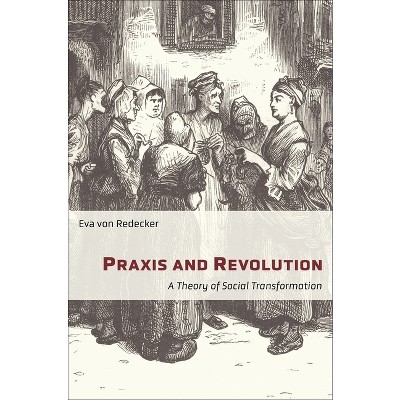Transitional Subjects - (New Directions in Critical Theory) by Amy Allen & Brian O'Connor (Paperback)

About this item
Highlights
- Critical social theory has long been marked by a deep, creative, and productive relationship with psychoanalysis.
- About the Author: Amy Allen is Liberal Arts Professor of Philosophy and Women's, Gender, and Sexuality Studies and head of the Department of Philosophy at the Pennsylvania State University.
- 280 Pages
- Philosophy, Movements
- Series Name: New Directions in Critical Theory
Description
About the Book
The first book-length collection devoted to the engagement of critical theory with the work of the object-relations school of psychoanalysis. It provides a synoptic overview of current research at the intersection of these two theoretical traditions while also opening up space for further innovations.Book Synopsis
Critical social theory has long been marked by a deep, creative, and productive relationship with psychoanalysis. Whereas Freud and Fromm were important cornerstones for the early Frankfurt School, recent thinkers have drawn on the object-relations school of psychoanalysis. Transitional Subjects is the first book-length collection devoted to the engagement of critical theory with the work of Melanie Klein, Donald Winnicott, and other members of this school. Featuring contributions from some of the leading figures working in both of these fields, including Axel Honneth, Joel Whitebook, Noëlle McAfee, Sara Beardsworth, and C. Fred Alford, it provides a synoptic overview of current research at the intersection of these two theoretical traditions while also opening up space for further innovations.
Transitional Subjects offers a range of perspectives on the critical potential of object-relations psychoanalysis, including feminist and Marxist views, to offer valuable insight into such fraught social issues as aggression, narcissism, "progress," and torture. The productive dialogue that emerges augments our understanding of the self as intersubjectively and socially constituted and of contemporary "social pathologies." Transitional Subjects shows how critical theory and object-relations psychoanalysis, considered together, have not only enriched critical theory but also invigorated psychoanalysis.Review Quotes
An incisive set of essays comprising new perspectives on the perennial interest of critical theorists in psychoanalysis . . . Ideal for students and scholars of critical theory and also for the study of humanistic psychology generally.-- "Choice"
Ever since its beginnings, the critical theory of the Frankfurt School has been engaged in a productive dialogue with psychoanalysis. But it was long assumed that only the individualistic, drive-centered theory of Freud could the reveal the psychic mechanisms underlying a repressive social order. The rich resources of post-Freudian developments in psychoanalysis were either neglected or outright rejected. This wide-ranging and thought-provoking collection of essays moves beyond that dead end, and brings critical theory's engagement with psychoanalysis up to date. Opening with a stimulating debate between Joel Whitebook and Axel Honneth, it shows that any theory placing damaged social and personal relationships at its center, as a critical theory of neoliberal capitalism should, cannot afford to ignore the insights of the psychoanalytic object-relations tradition.--Peter Dews, University of Essex
The essays in Transitional Subjects explain recent changes in Freudian psychoanalytic theory by investigating the shift toward a contemporary object-relational perspective. The political connections drawn from each paper are powerful, situating critical theory within capitalism and the various political aporias of everyday life.--Jamieson Webster, author of Conversion Disorder: Listening to the Body in Psychoanalysis
This engaging, deftly argued collection of essays at the intersection of Frankfurt School critical theory and object-relations psychoanalysis explores the ethical and political stakes of how we choose to understand human subjectivity. The book reanimates Frankfurt School critical theory by eliciting the help of object-relations theory, which is arguably an underexplored resource in academic discussions. Scholars across the critical humanities interested in affect, phantasy, the unconscious, and the death drive will benefit enormously from reading this phenomenally intelligent, innovative, and inspiring book.--Mari Ruti, author of Penis Envy and Other Bad Feelings: The Emotional Costs of Everyday Life
A serious and sustained encounter between critical theory and object-relations psychoanalysis is long overdue. Each of the essays collected in Transitional Subjects contributes something vital to both of these fields. As a whole, this volume develops the psychoanalytic project in critical theory and pushes it in exciting new directions.--Robyn Marasco, author of The Highway of Despair: Critical Theory After Hegel
About the Author
Amy Allen is Liberal Arts Professor of Philosophy and Women's, Gender, and Sexuality Studies and head of the Department of Philosophy at the Pennsylvania State University. Her books include, most recently, The End of Progress: Decolonizing the Normative Foundations of Critical Theory (Columbia, 2016).
Brian O'Connor is professor of philosophy at University College Dublin. His books include Adorno (2013) and Idleness: A Philosophical Essay (2018).Shipping details
Return details
Trending Poetry


